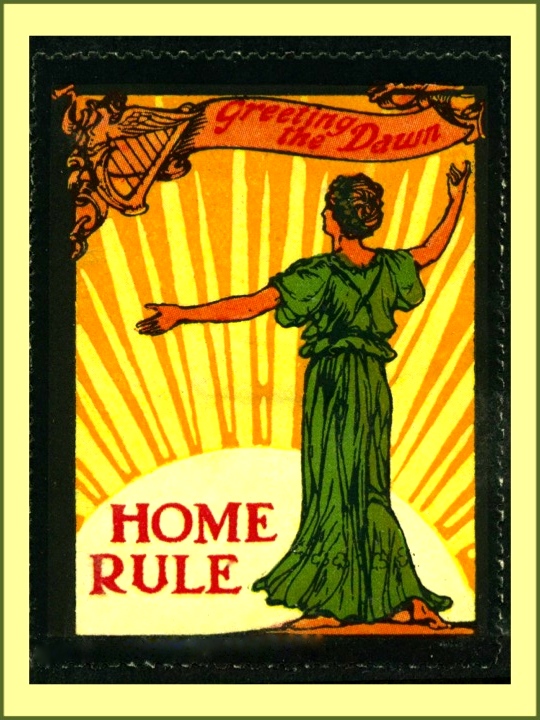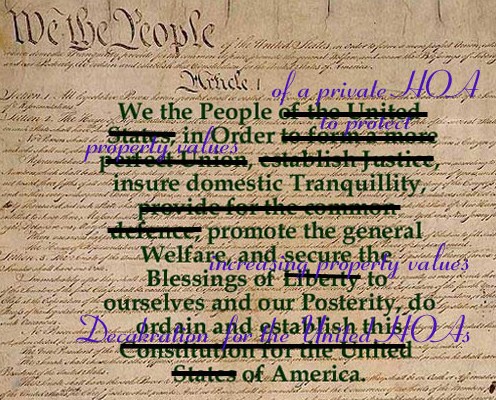“People could care less about the truth. People buy promises and dreams. They’ll do anything to avoid reality” (anonymous)
The above quote, reflecting human nature, gets to the very heart of the HOA-Land problem. It applies not only to SCG but to all HOA members throughout America. In a sarcastic Nextdoor post, the writer expressed his feelings that my posts were, in my words too cute, and that he didn’t want “to be in an association that George had anything to do with . . . and take his trouble making rhetoric to other lucky people.” I responded:
“My HOA right or wrong! So what if it has violated state laws and the governing documents, and refuses to defend itself. So what! As long as the amenities keep coming and assessments stay low, I guess all is OK.”
I have high hopes that all HOA members will follow their conscience and do what is right for their community, their state, and for America. The alternative is a rejection of our democratic institutions, our constitutional government, and the principles and values that we, as Americans, stand for. The alternative is an acceptance of the HOA-Land Nation Within America.
* * * *
For this case study, my objective was to unveil the truth and advise the BOD of a $22 million revenues, 9,500 unit, active-adult community in Arizona as to its conduct in deciding difficult and controversial issues. I put my management/BOD skills to work and began the study. It is very important in the learning process to share recommendations with others, and to accept their constructive criticism. Readers can reject, modify, or remove recommendations. This approach sharpens one’s thinking and helps to make a more solid case for HOA reforms.
In regard to the SCG members at large — apathy evidenced by silence or perhaps fear — prevailed as commonly found in HOA-Land. The vast majority of comments to my posts on social media and elsewhere were irrelevant and without merit. They failed to address my messages concerning violations of the laws and governing documents by boards of directors. Rather, they focused on my HOA right or wrong, take it or leave it, and move out.
The necessary first step for democratic reforms, as proposed in A Plan Toward Restructuring the HOA Model of Governance, is the reorientation and reeducation of the pubic and especially boards of directors. Based on my experience I presumed that they are uninformed and many prefer to remain uninformed; wrongly believing, and being led to believe, that their HOA is a wonderful country club instead of a legally binding contract between them and their HOA.
The findings from this research reaffirmed this view of HOA directors and members regardless of income or education levels — they are highly uninformed about the legal and governmental issues of an HOA association. It seems that the boards of directors over the years were and are heavily influenced by the Community Associations Institute’s teachings and programs.
Collectively referenced as the CAI School of HOA Governance stemming from its focus on “large-scale associations,” such as SCG. Some 13 SCG members served as CAI members, including CAI presidents or directors, while serving as SCG’s presidents, directors, and committee chairs. Its impact is devastating and cannot be underestimated.
This finding was very disappointing! The behavior and conduct by the leadership displayed false and misleading information, an illusion of “no problems here,” and for the most part, silence. It supported the position of authoritarian and cult followers as maintained in the Plan’s view of the HOA Culture, and its description of the social and political dynamics at work in HOA-Land.
This Supplement is organized in time sequence based on posts made to the HOA Constitutional Government website, including comments, referencing or alluding to emails, to the official Sun City Grand website’s News of the Day posts; and to posts and comments to social media websites: NextDoor (Desert Sage); Facebook’s Sun City Grand Members (AZ), closed by Administrator’ opposition; and Members of Sun City Grand AZ.
These exchanges are all reproduced as is, unedited except for omissions of non-relevant sections. In this manner, lacking audio-video materials, one can get a feeling of the posters’/commentators’ message tone.
George K. Staropoli
February 14, 2022


